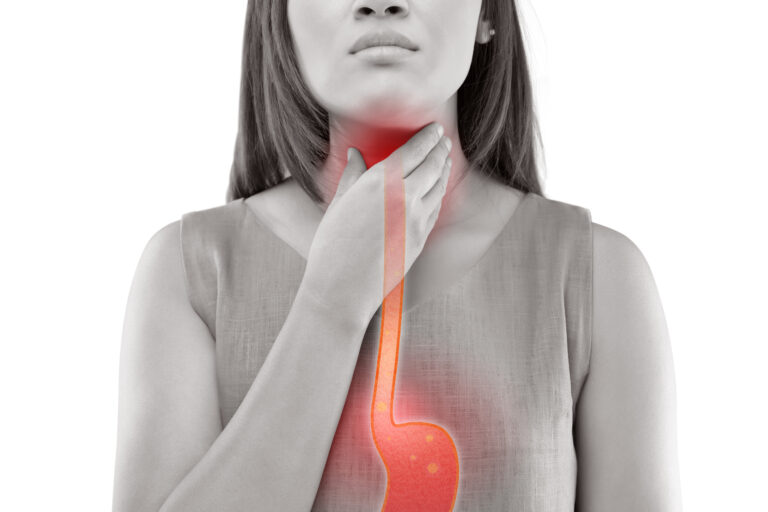Seems like everyone I talk to these days have complaints of GERD (Gastro-Esophageal Reflux Disease), heart burn, hiatal hernia and other digestive complaints. They pop antacid and acid reducing pills like candy, thinking they are curing their disease. The truth is, the drugs are not cures. They suppress stomach acid (stomach enzymes!) to give relief, and while symptomatically helpful, in the long haul they cause more problems than they help.
Anyone who suffers from digestive distress knows how uncomfortable and sometime life-changing these symptoms can be. If you’ve read the insert for your drugs, you’ll find it has a limit of intake of 2 weeks, with a 4 month break in between. There is a reason for this, however, those suffering would rather not stop because their symptoms return – and with a vengeance! This is because the symptom didn’t get cured, only masked. It’s like putting a piece of duct tape on the warning indicator light in your car. The duct tape never got rid of the problem – it’s still there and likely to worsen unless appropriate action is taken.
One mistake you can make is not taking action. Not only simply uncomfortable, acid reflux can progress into a more serious condition. While the stomach contains very acid enzymes (it’s supposed to!), these enzymes in of themselves don’t damage the stomach. The stomach was made to handle a very acid environment. But the more delicate tissues of the esophagus were not intended to come into contact with the acids in the stomach. When acid leaks up past the valve of the stomach and sloshes into the esophagus, tissue damage can occur. With time that can progress to a degenerative condition called Barrett’s Esophagus, which has a potential of turning into cancer. This condition cannot be left untreated. But are antacids and acid suppressive medications the right answer?
I don’t believe so. While there are times where short-term use may be appropriate, the emphasis is on short term. It is not a cure. There are long terms risks of taking digestive drugs.
New studies have shown that indigestion tablets increase the risk of stroke, heart attack, kidney disease, osteoporosis, arthritis, cataracts and dementia. Worse yet, they make acid reflux and heartburn worse! Generally within 2 weeks of stopping these medications, symptoms of heartburn and reflux skyrocket, called rebound acid hypersecretion. Of course, then that person jumps back on them again, scared and uncomfortable.
The only way to get off these meds appears to be to fix the problem. What a concept! Why do you have heartburn and/or reflux? The body doesn’t just decide one day that it is going to work against you. Rather, you are working against it. There are several different ways we unknowingly work against our body. Many reasons have to do with lifestyle, how much, and what we eat and even our thoughts effect our digestion. There are probably more than 30 reasons why you can have digestive distress. This is why you need a practitioner that is a health detective! While it’s easy to write a prescription for an acid reducing medication, it take more time, attention and perseverance to uncover the reason for the digestive condition, then apply appropriate treatment to fix the problem. If your GERD is uncured, time to try a different approach.
©2017 Holly A. Carling, O.M.D., L.Ac., Ph.D.







